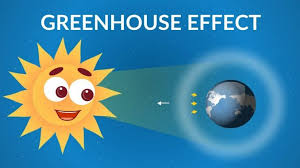Green house effect
Title: The Greenhouse Effect: Causes, Consequences, and Mitigation Strategies
Abstract:
The greenhouse effect is a natural process that plays a vital role in regulating Earth's temperature. However, human activities have significantly intensified this effect, leading to global warming and climate change. This essay explores the greenhouse effect, its causes, consequences, and potential mitigation strategies. The discussion will encompass the scientific principles underlying the greenhouse effect, the sources of greenhouse gases, the impacts of global warming, and the various approaches to mitigate climate change. Understanding and addressing the greenhouse effect are crucial for safeguarding our planet and ensuring a sustainable future.
Introduction:
Brief explanation of the greenhouse effect and its importance in maintaining Earth's temperature.
Statement of the problem: Human activities have contributed to an intensification of the greenhouse effect, leading to global warming and climate change.
Scientific Principles of the Greenhouse Effect:
Explanation of how the greenhouse effect works, including the role of greenhouse gases in trapping heat.
Discussion of the primary greenhouse gases: carbon dioxide (CO2), methane (CH4), nitrous oxide (N2O), and fluorinated gases.
Examination of the natural and human-induced factors that influence greenhouse gas concentrations in the atmosphere.
Causes of the Enhanced Greenhouse Effect:
Analysis of human activities as the primary drivers of increased greenhouse gas emissions.
Overview of the main sources of greenhouse gases: fossil fuel combustion, deforestation, industrial processes, agriculture, and waste management.
Discussion of the relationship between economic development and greenhouse gas emissions.
Consequences of Global Warming:
Examination of the impacts of global warming on various components of the Earth system, including the atmosphere, oceans, cryosphere, and ecosystems.
Discussion of the consequences for human health, including increased frequency and intensity of heatwaves, extreme weather events, and the spread of diseases.
Analysis of the potential socio-economic consequences, such as food and water scarcity, displacement of populations, and economic disruptions.
Mitigation Strategies:
Introduction to mitigation as the process of reducing greenhouse gas emissions and enhancing carbon sinks.
Evaluation of mitigation strategies at different levels: individual, societal, and international.
Overview of energy-related mitigation options, including renewable energy, energy efficiency, and carbon capture and storage (CCS).
Examination of land-use and forestry measures, such as afforestation, reforestation, and sustainable agricultural practices.
Analysis of policies and international agreements aimed at mitigating climate change, such as the Paris Agreement and carbon pricing mechanisms.
Challenges and Opportunities:
Discussion of the challenges faced in implementing effective mitigation strategies, including political, economic, and technological barriers.
Examination of the role of businesses, governments, and individuals in driving change and fostering a transition to a low-carbon economy.
Identification of the co-benefits associated with climate mitigation, including improved air quality, job creation, and sustainable development opportunities.
Adaptation and Resilience:
Acknowledgment of the need to adapt to the changes already occurring as a result of global warming.
Examination of adaptation strategies to minimize the impacts of climate change on vulnerable communities, infrastructure, and ecosystems.
Discussion of the importance of building resilience and enhancing adaptive capacity at local, national, and global scales.
Conclusion:
Summary of the greenhouse effect, its causes, and the consequences of global warming.
Emphasis on the importance of immediate and coordinated action to mitigate climate change and protect the planet for future generations.
In conclusion, the greenhouse effect is a natural process essential for sustaining life on Earth. However, human activities have significantly enhanced this effect, leading to global warming and climate change. Understanding the causes, consequences, and mitigation strategies associated with the greenhouse effect is crucial for addressing this pressing environmental challenge. By implementing effective mitigation measures, fostering international cooperation, and promoting sustainable practices, we can strive towards a more resilient and climate-conscious future.



I also like this
ReplyDeleteIt is on social issues and I this
ReplyDelete